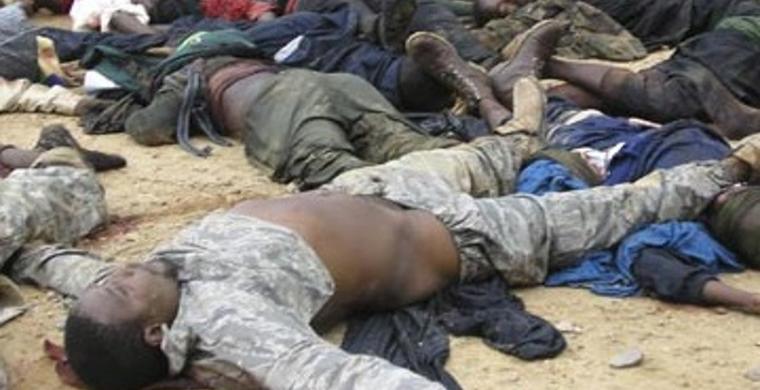Nigerian jihad
Rev. Hassan John
October 15, 2018
"Pastor, we are tired of fasting and praying. Why doesn't God stop the Muslims from killing us?"
Christians asked this of a pastor friend in Nigeria recently. He and other pastors in the Middle Belt and North of Nigeria are facing the same question.
Nigerian Christianity is under siege from radical Islam. The country's importance in both Africa and the new Christianity of the Global South makes this siege particularly noteworthy. Nigeria is Africa's most populous country. With a population of about 200 million (50% Christian, 40% Muslim, 10% animist) and a birthrate of 5.5, the United Nations estimates that by 2050 Nigeria will surpass the United States in population and become the third most populous country in the world. It is no wonder that for several decades Muslims have made Christian-majority Nigeria a strategic target.
Since the beginning of 2018 eight thousand Christians, both Catholic and Protestant, have been massacred by Boko Haram, a radical Muslim movement whose name means "western education forbidden." Since 2009 twenty thousand Christians have been hacked with machetes or shot with AK-47s. Two million have been displaced. Pastors and their families have been specifically targeted for death.
The government's response has only deepened Christian frustrations. President Buhari, a Muslim, describes the violence as a "clash" between Fulani tribesmen and farmers (who are mostly Christian). But as a Christian pastor recently told fellow refugees in a camp for the displaced, "The government is telling the world what it wants to hear, that this has nothing to do with religion. But we ask, 'Why are all the attackers Boko Haram? And why do they target only Christians?' The government says Muslims too have been killed. But that is because Boko Haram bombs set off in the market accidentally strike Muslims who were in the wrong place at the wrong time."
In 2010 I started reporting about these attacks for a popular radio show in Nigeria, and then for CNN. By 2012 people started calling me whenever there was an attack around Jos, the central city in the Middle Belt where the majority of attacks were directed. As a result I am usually the first reporter on the scene of an attack. Tragically, I have come to the scene of over one hundred massacres, one time finding 500 mutilated bodies.
Pastors in mid- and northern Nigeria face daunting pressures. Some conduct funerals almost every week for victims, often in mass burials. They struggle to answer their parishioners' questions about God's love and justice. They hear the world media dismiss this as an ethnic clash, when they know it is a strategic scorched-earth war, a modern-day jihad against Christianity.
Because of this desperate situation, I have organized apologetics seminars for pastors. We meet secretly. Our meetings are announced by cellphone only an hour before, lest our venue be discovered by secret police. To protect against informers, we invite only those pastors who are recommended by another reliable pastor. Twice we have had to cancel at the last minute because of a suicide bomber. Some bombers have been little girls about 10 years old wearing a hijab to cover their explosive device.
We use five approaches to talk about God and evil. First we explain that God made us free to love or hate him. Without that freedom there would be no love.
Second, life does not end on this earth. Third, God is just. Someday there will be judgment, and no evildoer will get away with the evil he or she has done.
Fourth, God is love. That can be hard to believe in this evil time unless we look at Jesus' cross. There God himself suffered at the hands of evil men, and because of it love was released for the whole world.
Fifth, we listen to testimonies of pastors and other Christians who saw the manifest presence of God in the midst of suffering and were transformed.
Our seminars have gone well. One pastor spoke for many: "Now I know that nothing can stop the Church of Jesus Christ. I will continue as a pastor and evangelist. If I get killed doing this, so be it."
Several years ago I received a phone call saying that someone had found my wallet, and I could get it at an abandoned race course if I met him there. I knew it was fishy because I don't carry a wallet. Then when I was investigating a story about another massacre south of Jos, I saw a charcoal message emblazoned on a wall, "Hassan, we know about you and will meet you one day." Later a Muslim friend confirmed that Boko Haram had put a bounty of $700 on my head.
Since then I have taken many precautions. But I refuse to live in fear. I tell myself that if God does not protect me, no one else can.
Hassan John is an Oxford-trained Anglican priest in Nigeria.














